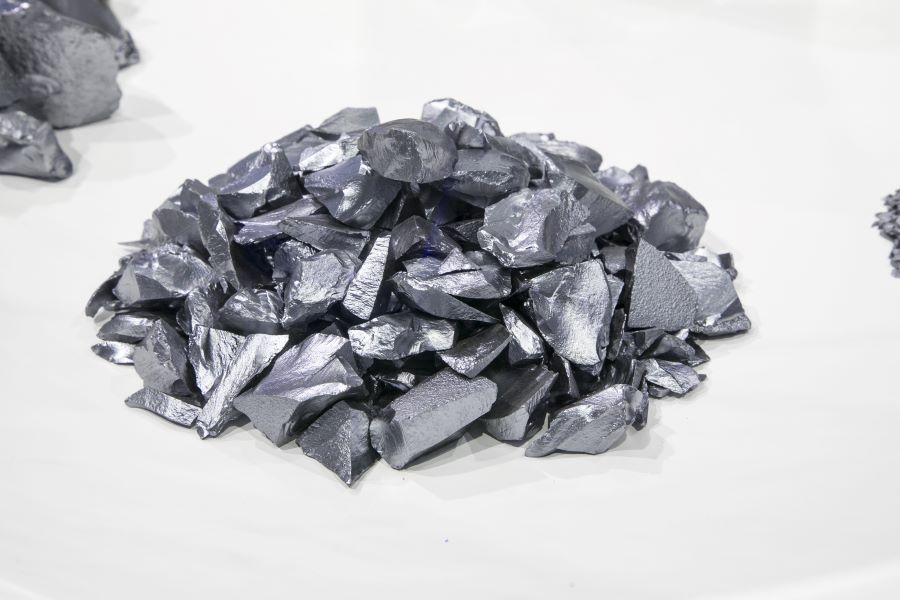JinkoSolar Shines in Latest Polysilicon Tie-Up, Brightening Industry Trends

Company to invest $70 million in new polysilicon joint venture with supplier Tongwei
Key Takeaways:
- JinkoSolar’s shares rise 5% after announcement of a new $70 million investment in domestic polysilicon maker Tongwei
- Company’s stock is up 33% since early September on improving outlook for solar panel makers
By Doug Young
The latest steps to strengthen its polysilicon supply chain are providing a lift to solar panel maker JinkoSolar Holding Co. Ltd. (JKS.US), underscoring the recent importance of securing such supplies in an industry with quite a few moving parts.
We’ll look at JinkoSolar’s latest announcement shortly, which involves a new investment in Chinese polysilicon giant Tongwei Co. Ltd. (600438.SH). But first we’ll step back and examine the bigger picture for global polysilicon supplies, which are just one of several major factors that have been affecting the solar panel industry this year.
Polysilicon, the main ingredient used to make solar panels, has been in relatively short supply for the past year, squeezing manufacturers like JinkoSolar.
That reality was on display in the latest quarterly results announced last week from Daqo New Energy Corp. (DQ.US), a major polysilicon maker, which said the average price of its polysilicon rose 32% in the third quarter compared with the second. Daqo commented that prices as of last week had climbed further still to about $35 per kilogram, up about 23% from the average price of $27.55 per kilogram from the third quarter.
Soaring global shipping rates are also hurting demand for manufacturers like JinkoSolar by further inflating the costs overseas customers must pay for panels.
On a more positive note, current worldwide energy shortages that have led to blackouts in many countries are driving demand for new power plants of all kinds, including solar. And let’s not forget the big global climate summit now taking place in Scotland, where the focus on reducing carbon emissions is casting a favorable light on renewable energy sources like solar, wind and hydro.
With all those different factors tugging panel makers in different directions, it’s understandable why solar stocks have been on a bit of a roller coaster ride this year. Year to date JinkoSolar’s stock is down about 15%.
But that figure hides a number of peaks and valleys within the year, including a low point in May when JinkoSolar’s stock had lost half of its value from January amid all the concerns about high polysilicon prices. Since then the stock has rebounded sharply as panel makers found that buyers were gradually accepting higher panel prices.
JinkoSolar’s stock has rallied 33% since Sept. 10, lifted by momentum created by the global energy shortages and growing talk of the need to install more renewable energy to reduce carbon emissions. China has been at the forefront of that movement, setting goals of reaching peak carbon emissions by 2030 and going carbon neutral by 2060.
With all that background in mind, we’ll zoom in on JinkoSolar’s announcement of its latest polysilicon tie-up, which sparked a 5% rally for its New York-listed shares. The company said it would invest 450 million yuan ($70 million) in a Tongwei unit to build a polysilicon production line with annual capacity of 100,000 tons.
JinkoSolar would be a major beneficiary of that new tie-up, entitled to 30,000 tons of polysilicon from the project once it is fully operational. Tongwei investors seemed less excited about the deal, with the company’s China-listed shares down about 10% in the first three trading days of this week.
Stabilizing Supply
The latest announcement is an extension of JinkoSolar’s recent efforts to secure stable polysilicon supplies through tie-ups with Tongwei and other major manufacturers. It was already a Tongwei customer, and in February the pair announced a joint venture to produce polysilicon as a raw material and also the polysilicon wafers that are ultimately used to make solar panels.
In addition to its Tongwei partnership, JinkoSolar has also invested in Xinte (1799.HK), another major Chinese polysilicon maker. And it has a five-year supply agreement with German giant Wacker Chemie (WCH.DE), showing its determination to make sure it has access to a diversified group of suppliers to keep its production lines running.
The difficulties JinkoSolar and its peers faced in the first half of the year most likely receded in the third quarter, though the company has yet to announce results for that period. But second-quarter results announced in September showed its situation was already starting to stabilize.
Those results showed JinkoSolar’s second-quarter shipments totaled 5.2 GW of products, which was down a relatively mild 2.8% from the previous quarter. The company forecast third-quarter shipments of 5 GW to 5.5 GW, which would be roughly stable compared with second-quarter levels.
Revenue was also down sequentially in the second quarter, but again by just 0.2% from the first quarter to 7.9 billion yuan. The company’s profit was down by a much larger 79% year-on-year to 66.2 million yuan, though it blamed that decrease mostly on costs related to the change in value of some of its convertible notes.
In its comments accompanying the second-quarter report, JinkoSolar said the stabilizing situation was partly the result of growing customer acceptance of higher panel prices, which it expected to continue into the second half of the year. Daqo provided an additional upbeat signal in its results last week, saying recent global energy shortages are expected to boost the solar sector in the near-term.
So where do all of those myriad signals leave the solar companies in terms of valuation?
The answer is mixed, depending on where in the chain individual companies are located. People seem most bearish on polysilicon makers like Daqo and Wacker Chemie, which have price-to-earnings (P/E) ratios of 7 and 10, respectively, based on profit forecasts for 2021. By comparison, JinkoSolar and other panel makers are much higher. JinkoSolar’s PE based on profit forecasts for this year stands at 23, while Chinese rival Canadian Solar (CSIQ.US) and U.S. giant First Solar (FSLR.US) both trade at a somewhat higher 28.
The difference between the polysilicon and panel makers lies in the fact that analysts expect profits to come down for the former group next year as polysilicon prices stabilize and most likely start to come down. By comparison, JinkSolar’s profits are expected to grow around 50% next year as it and its peers benefit from stabilizing polysilicon prices and other favorable factors mentioned above.
To subscribe to Bamboo Works free weekly newsletter, click here






